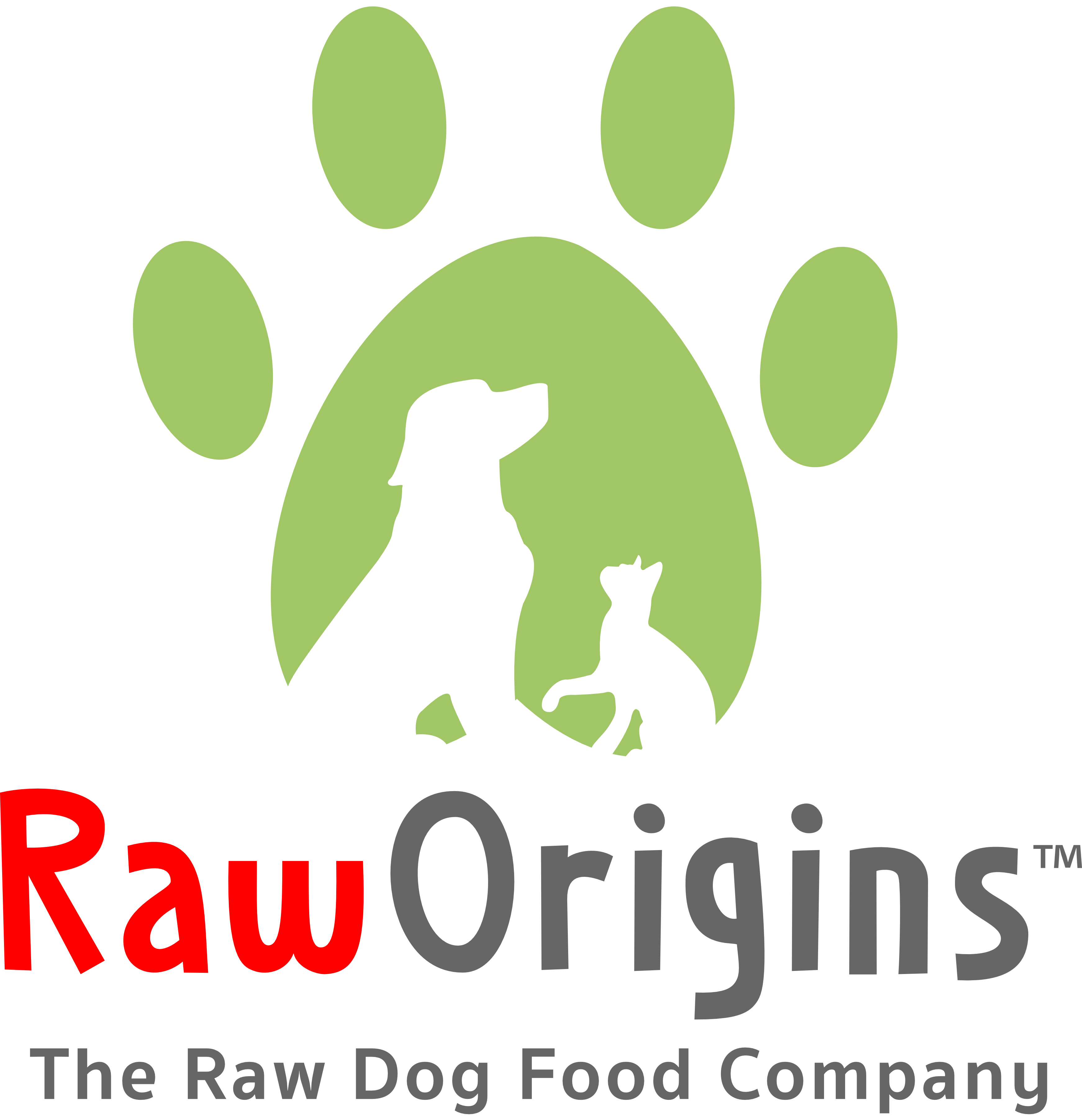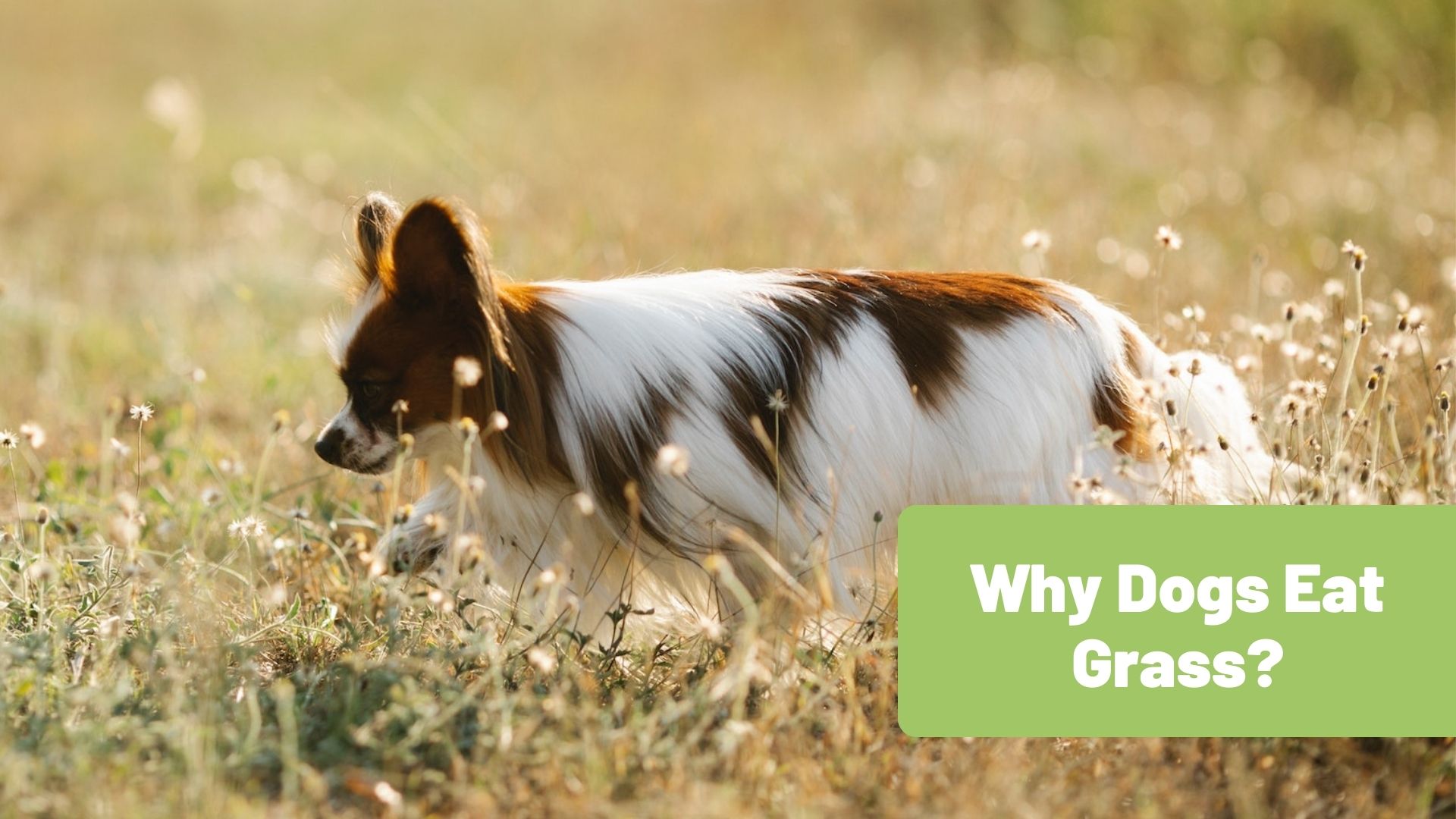For many dog owners, watching their furry friend chomp down on grass during a walk can be a perplexing sight. While it might seem odd or concerning, this behavior is relatively common among canines. But what drives them to snack on the green stuff? Let’s dive into the mystery of why dogs eat grass.
A Natural Instinct
Historically, when we trace back the lineage of our domesticated dogs to their wild counterparts, we find that these ancestors often consumed a variety of foods to sustain themselves, not strictly limited to meat. This diet would have included plant material, be it from the stomach contents of their prey or directly from the environment.
Over generations, even as dogs became more domesticated, certain behaviors have persisted. One such behavior is the consumption of grass. This isn’t merely a random act; it’s a deep-seated instinct that harks back to their wild roots.
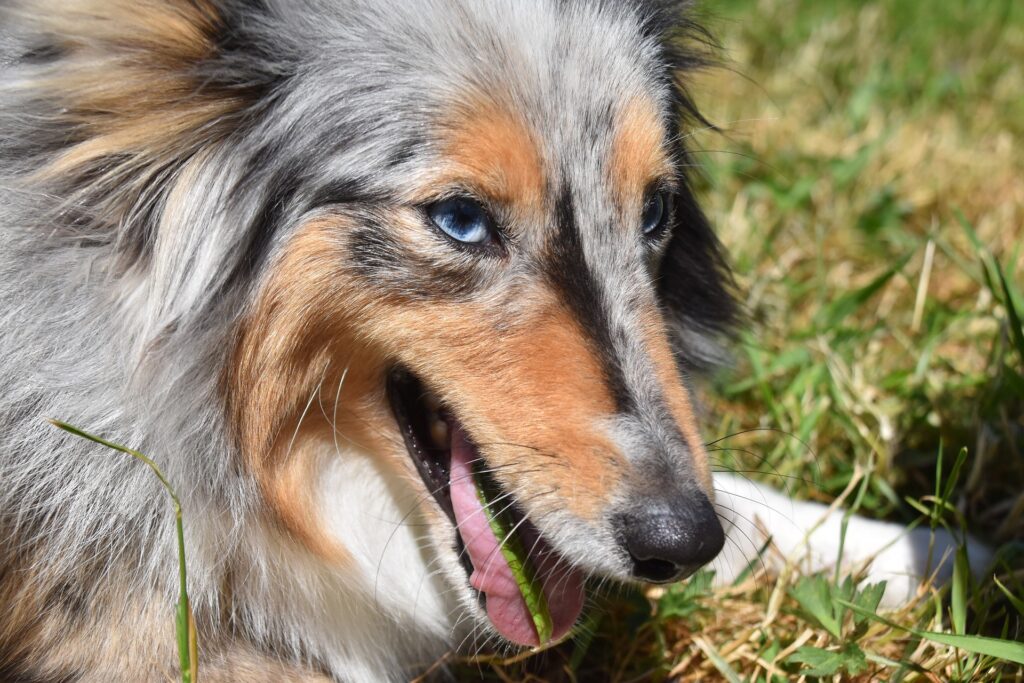
By eating grass, dogs are not just fulfilling a dietary whim; they are, in essence, connecting with a behavior that once might have been essential for their survival. It’s a tangible link to their evolutionary past, a reminder of where they came from, and a testament to the intricate and complex history of canine evolution.
Dietary Needs
Several veterinary and animal behavior experts have delved into the reasons behind why dogs might exhibit the peculiar behavior of eating grass. One prevailing theory suggests that this behavior is driven by a dietary imbalance or deficiency in their regular food regimen. Just like humans, dogs require a certain amount of fiber for optimal digestive health.
Grass, being a natural and abundant source of fiber, could be a means for dogs to supplement what they might not be receiving from their standard meals. If their regular diet falls short in providing the necessary fiber or other essential nutrients, dogs could instinctively gravitate towards consuming grass.
By doing so, they are not just indulging in a random act but are intuitively trying to balance and fulfill their dietary needs using resources available in their environment. This behavior underscores the adaptive nature of dogs and their ability to seek out nutritional solutions in unconventional ways.
Inducing Vomiting
Among the myriad of hypotheses aiming to explain the behavior of dogs eating grass, one theory that stands out and is often cited by veterinarians and animal behaviorists is the self-medication perspective. This theory posits that dogs might consume grass as a natural remedy to induce vomiting. Just as humans might seek over-the-counter remedies when they consume something disagreeable, dogs, in their intuitive wisdom, might turn to grass.
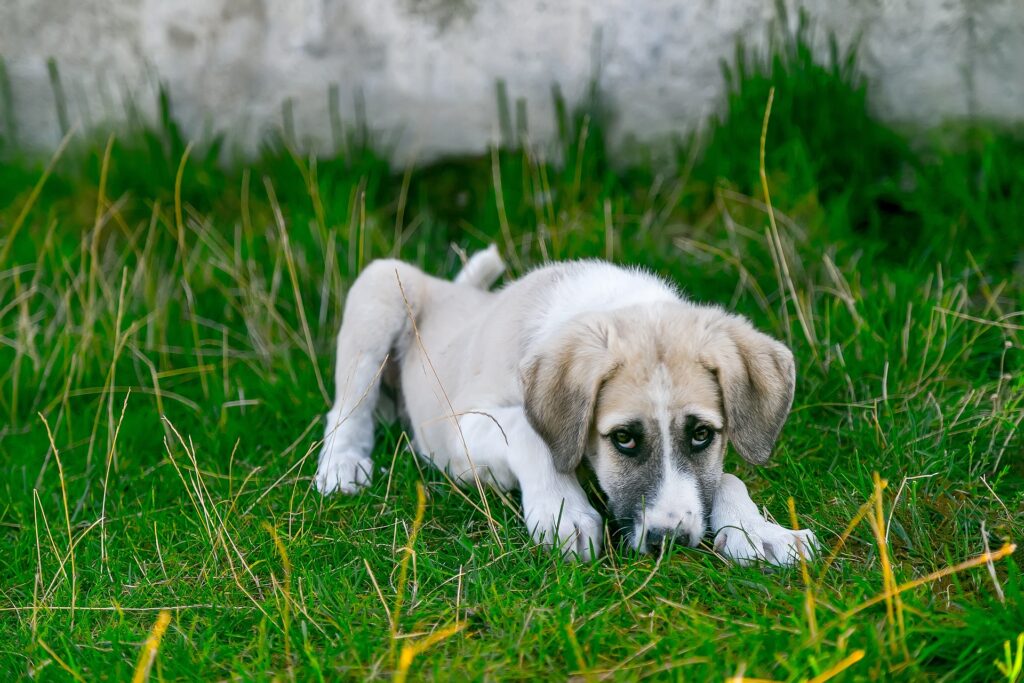
When ingested, especially in large amounts, the coarse texture of grass can irritate their throat and the lining of their stomach. This irritation often results in vomiting, which can provide relief by expelling the offending food or substance. In essence, this behavior could be an age-old survival instinct, enabling dogs to address and remedy digestive discomforts on their own, using the natural resources around them.
Improved Digestion
Grass, often overlooked by humans as a simple ground cover, possesses properties that can function as a natural laxative, particularly beneficial for dogs. The fibrous content of grass can stimulate the digestive tract, promoting movement and aiding in the expulsion of waste. If a dog is experiencing symptoms of constipation, bloating, or general digestive discomfort, they might be instinctively drawn to consume grass.
This isn’t a random behavior but a deeply ingrained instinct that allows them to naturally address and alleviate their digestive ailments. By consuming grass, they’re not only seeking relief but also harnessing nature’s remedy to assist and streamline their digestive process, showcasing the adaptive strategies animals employ to maintain their well-being using their environment.
It’s Simply Tasty!
At times, we delve deep into theories and hypotheses, seeking intricate explanations, when the answer may be quite simple and straightforward. When it comes to dogs eating grass, it could very well be that they genuinely enjoy the flavor or the tactile sensation it offers. Much like how humans might have an occasional yearning for a crisp, refreshing salad, dogs may find a similar satisfaction in munching on grass.
It’s a reminder that animals, just like us, can have preferences and tastes that are governed not just by nutritional needs but also by pure enjoyment. So, while there might be various reasons behind this behavior, sometimes it’s just a matter of a dog relishing the simple pleasures nature provides.
Behavioral Reasons
For some dogs, the act of eating grass may not always be directly linked to dietary needs or physical health. Instead, it could be rooted in their emotional well-being. Just as humans sometimes engage in specific behaviors out of boredom or anxiety, dogs too have their coping mechanisms. Eating grass could be a manifestation of these feelings.
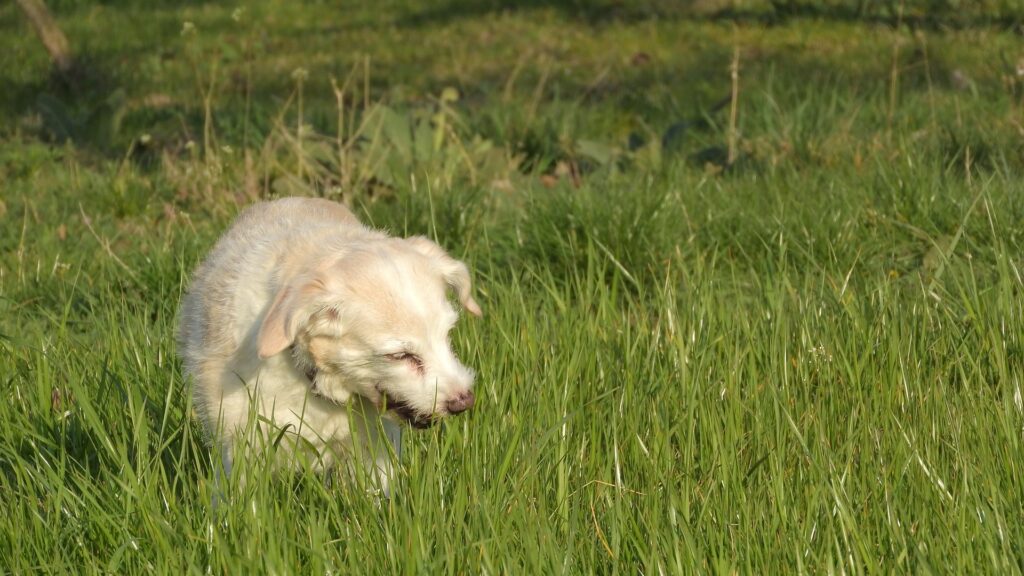
When left alone for extended periods, or when faced with unfamiliar or stressful situations, dogs might turn to the act of grazing as a distraction or a means to self-soothe. It serves as an activity to occupy themselves, a way to momentarily divert from the monotony or the anxiety they might be experiencing. Understanding this aspect is essential as it underscores the importance of paying attention to not just the physical but also the emotional needs of our canine companions.
Pica: A Medical Concern
Pica is a behavioral condition characterized by animals’ inclination to consume items that aren’t traditionally considered food. This behavior goes beyond the occasional nibble on grass or a curious bite of an odd item. Instead, animals with Pica might consistently ingest things like plastic, rocks, cloth, or in the case of dogs, excessive amounts of grass.
If you observe your dog regularly eating large quantities of grass or showing an unusual interest in other non-food items, it might be more than just a quirky habit. This persistent behavior could be indicative of the Pica condition. Given the potential health risks associated with ingesting non-food items, such as blockages or toxicity, it’s crucial to take these signs seriously.
Should you suspect your dog might be exhibiting symptoms of Pica, it is advisable to promptly consult with a veterinarian. They can provide guidance, run necessary tests, and offer potential solutions to ensure your pet’s safety and well-being.
Wrapping It Up
While the sight of your dog munching on grass might be puzzling, in many cases, it’s a harmless and natural behavior. However, if you notice any sudden changes in appetite, frequent vomiting, or other unusual behaviors, it’s always best to seek the advice of a veterinarian.
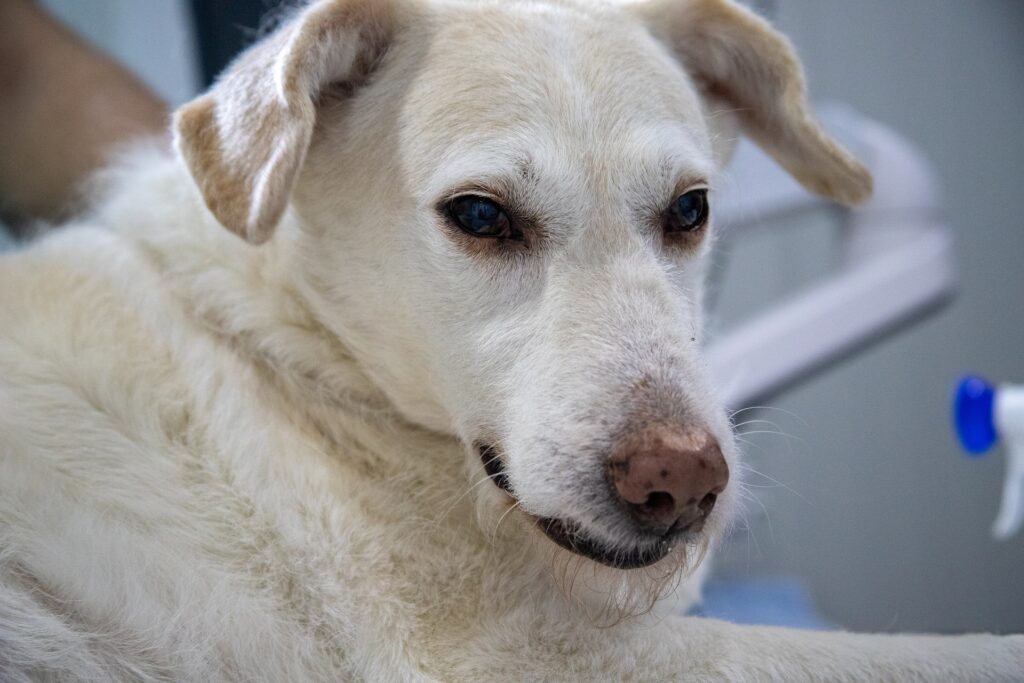
They can provide guidance tailored to your dog’s specific needs and help ensure their well-being. Remember, every dog is unique, so understanding their specific habits and preferences will give you the best insight into their grass-eating mystery. Get updated knowledge on how to feed raw, discounts, coupons, and holistic rearing at www.RawOrigins.pet.
